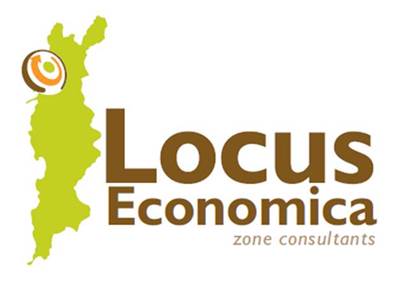Locus Economica consultants Jean-Paul Gauthier and Harold Godsoe were featured in Global Finance Magazine's great recent article, "Special Economic Zones: Who Wins, Who Loses?." In the article, Jean-Paul and Harold contributed to an excellent summary of the policies that tend to produce successful zones and the policies that undermine success. Here is just a quick sketch:
Successful zones policies:
- Address identified constraints to investment in the host country, such as ease of interacting with government, access to utilities, and labor market frictions
- Have broad political support from the nation's leaders
- Include a credible, efficient, and effective regulatory environment
- Are located near major ports of entry
- Make it easier for companies to bring in expatriate managers
- Have dedicated and reliable electricity, transportation, and other high quality infrastructure, which has proven crucial for African zones
- Develop the capabilities of workers, such as through job training centers like the one in the Free Industrial Zone of Penang, Malaysia
- Lower the costs of labor, such as in South Africa, where the government is considering a wage subsidy for all SEZ workers
- Combine customs duty exemptions and other fiscal incentives with a range of improvements to the business environment
Factors that undermine zone success:
- Countries with a tenuous history for the rule of law, such as a reputation for human rights and environmental abuses
- An over reliance on tax incentives, which have been demonstrated to have little effect on many companies' location decisions, deplete scarce public resources without much return, and tend to attract more 'footloose' investors that will leave when the incentives expire
- Attempting to address too many problems at once through the zones program
These are just a few of the important factors in a strong SEZ program. Each must be adapted to the particular context of the host country and modified as appropriate. For more information on these and other factors affecting zone success, feel free to contact us.

